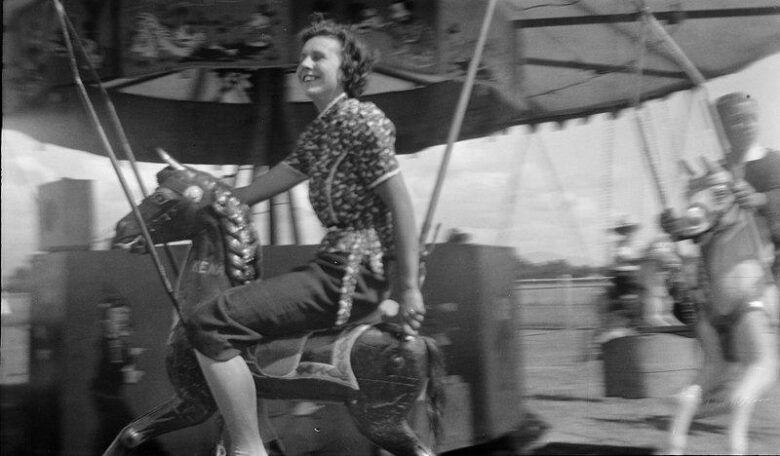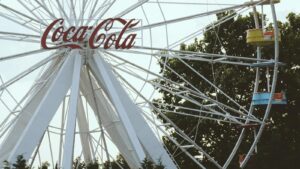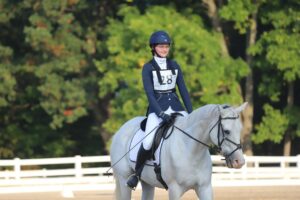In the realm where hoofbeats harmonize with grace, where man and horse dance as one in an exquisite display, lies the artistry of dressage. A captivating symphony of precision and elegance, this ancient equestrian discipline has captivated hearts for centuries. As we delve into the world of dressage, we embark on a journey where the equine athlete becomes a painter, and the arena their canvas. Join us as we explore the depths of this equine art form, relishing in the mesmerizing allure of dressage – a true masterpiece in motion.
The Graceful Balance: Unveiling the Sublime Choreography of Dressage
The Artistry of Dressage: Precision and Elegance in Equine Performance
In the enchanting world of equestrian sports, there is one discipline that stands out for its sheer beauty and harmony: dressage. Often referred to as the “ballet of horses,” dressage combines athleticism and artistry to create a mesmerizing display of grace and precision. From intricate movements to seamless transitions, the sublime choreography of dressage captivates both riders and spectators alike.
At the heart of dressage lies the pursuit of perfection in every movement. The horse and rider must move as one, their connection an unbreakable bond built on trust and communication. Each step, each turn, and each extension is meticulously orchestrated, emphasizing the horse’s natural athleticism and suppleness. From piaffes to pirouettes, the horse’s movement is elevated to a level of poetry in motion, where precision becomes an art form.
What truly sets dressage apart is its focus on subtlety and finesse. While other equestrian disciplines may rely on speed or strength, dressage requires innate harmony and a delicate touch. Through subtle aids and nuanced cues, the rider guides the horse through an elegant and intricate dance. The artistry of dressage lies not in flashy tricks, but in the seamless execution of seemingly effortless movements, creating a symphony of motion that is as breathtaking as it is captivating.
| Movement | Description | Difficulty |
|---|---|---|
| Piaffe | A highly collected trot performed in place | Intermediate |
| Pirouette | A 360-degree turn on the hind legs with a small, tight circle | Advanced |
| Passage | A slow, elevated trot with a distinct suspension phase | Expert |
The artistry of dressage is a testament to the profound connection between horse and rider. It celebrates the beauty of movement and the extraordinary partnership that can be achieved through dedication and practice. Dressage is not just a sport; it is an expression of elegance and harmony, where equine performance reaches its pinnacle, leaving spectators in awe of the graceful balance between horse and rider.
Mastering the Fine Art of Communication: Understanding the Intricate Language of Rider and Horse
In the world of equestrian sports, Dressage is considered the epitome of precision and elegance. Its intricate movements and seamless harmony between rider and horse truly capture the artistry and beauty of equine performance. At its core, Dressage is a language, allowing riders to communicate with their horses effectively and effortlessly. Understanding the nuances and intricacies of this language is vital for mastering the fine art of communication in the arena.
The language of Dressage is a unique blend of subtle cues, body language, and precise aids that convey the rider’s intent to the horse. It requires a deep understanding of the horse’s biomechanics and psychology, as well as the ability to anticipate and respond to their every movement. Through years of training and practice, riders develop an extraordinary sense of timing and finesse, enabling them to guide their horses through complex exercises with grace and precision.
A key aspect of Dressage is the concept of “on the bit,” where the horse accepts the contact with the rider’s hand, resulting in a round, supple frame. Achieving this level of connection and engagement requires a delicate balance of physical and mental alignment. Riders must have a light and independent seat, using their weight, legs, and hands in perfect harmony to guide the horse’s every step. The rider’s aids must be clear, concise, and effortlessly executed, allowing for seamless communication and an effortless partnership between horse and rider.
| Movement | Description |
|---|---|
| Piaffe | A highly collected, elevated trot performed in place. |
| Passage | A slow, elevated trot with a pronounced suspension phase. |
| Half-pass | A diagonal movement where the horse moves forward and sideways at the same time. |
Mastering the fine art of communication in Dressage is a journey filled with dedication, patience, and unwavering focus. It requires not only technical skill but also a deep bond and understanding between horse and rider. Through the intricate language of Dressage, riders unlock the true potential of their horses, creating a mesmerizing display of precision, elegance, and unity in equine performance.
Achieving Elegance through Endless Practice: Building a Strong Foundation in Dressage
In the world of equestrian disciplines, dressage stands out as a true art form, where precision and elegance intertwine effortlessly. This captivating discipline requires both horse and rider to perform a series of intricate movements with grace, harmony, and impeccable timing. Building a strong foundation in dressage is a continuous journey, one that demands relentless practice and a deep understanding of the horse’s biomechanics.
At the core of dressage lies the pursuit of harmony between horse and rider. This harmony is only achievable through endless practice, as both partners must develop a strong foundation of trust, respect, and communication. Dressage riders are dedicated practitioners, honing their skills to establish a subtle connection with their equine partners.
Mastering the art of dressage requires careful attention to both the physical and mental aspects of horsemanship. A rider must have a deep understanding of their horse’s anatomy, as well as the ability to communicate their requests to their equine companion with finesse. The training sessions are a harmonious dance between the rider’s aids and the horse’s responses. Through endless practice, the rider refines their seat, aids, and timing, while the horse develops the strength, flexibility, and responsiveness necessary for the intricate movements of dressage.
Inspirational Figures in Dressage: Learning from the Masters’ Techniques and Strategies
The Artistry of Dressage: Precision and Elegance in Equine Performance
In the world of dressage, where horse and rider become one in a graceful ballet, there are certain figures who have left an indelible mark on the sport. These inspirational figures, masters of the art, have not only achieved extraordinary success but have also revolutionized the techniques and strategies of dressage. Their precision and elegance are a testament to the artistry of this sport, and their lessons can teach us valuable insights into achieving excellence in equine performance.
Carl Hester: Renowned for his exceptional horsemanship, Carl Hester is a name synonymous with dressage excellence. Known for his ability to bring out the best in every horse, his training methods focus on building trust and communication between horse and rider. Hester’s attention to detail and unwavering dedication to his craft have earned him multiple Olympic medals and the respect of the dressage community.
Isabell Werth: Considered one of the most successful dressage riders in history, Isabell Werth is a true maestro of the sport. Her ability to create harmonious partnerships with her horses and execute flawless performances has made her a role model for aspiring dressage riders. Werth’s emphasis on developing the physical and mental well-being of her horses sets her apart, reminding us that the artistry of dressage goes beyond mere technical precision.
| Name | Achievements |
|---|---|
| Carl Hester | Multiple Olympic medals |
| Isabell Werth | Multiple Olympic medals, World Champion titles |
| Charlotte Dujardin | Double Olympic gold medalist |
Charlotte Dujardin: A true trailblazer, Charlotte Dujardin shattered records and expectations with her exceptional performances. Her partnership with the legendary horse Valegro captivated the world and showcased the heights that dressage can reach. Known for her fearless approach and ability to perform under pressure, Dujardin’s achievements have inspired a new generation of dressage enthusiasts.
Studying the techniques and strategies of these inspirational figures allows us to understand the nuances of dressage and apply them to our own equestrian pursuits. Their dedication, precision, and artistry remind us that dressage is not just a sport but a beautiful journey of growth and partnership between horse and rider.
Unlocking the Secrets of Dressage: Essential Training Tips for A Harmonious Partnership with Your Horse
The art of dressage is a true masterpiece of precision and elegance, showcasing the harmonious partnership between horse and rider. In this post, we will delve into the secrets of dressage training, revealing essential tips that will help you achieve a true connection with your equine partner.
1. Develop a Solid Foundation:
- Establish a strong bond with your horse through trust and respect.
- Focus on building a solid basic training regimen, including exercises such as lunging and ground work.
- Create a routine that combines physical and mental exercises to keep your horse engaged and attentive.
- Always prioritize your horse’s well-being, ensuring their comfort and fitness level.
2. Master the Art of Communication:
- Practice clear and consistent aids, using subtle cues to communicate your requests.
- Develop an understanding of your horse’s body language and signals.
- Refine your riding position, maintaining a balanced seat and a soft connection with the reins.
- Remember that dressage is about creating a dialogue with your horse, rather than imposing your will upon them.
3. Perfect the Elements of Dressage:
- Focus on the three key elements of dressage – rhythm, suppleness, and impulsion.
- Achieve a consistent rhythm in all gaits, allowing your horse to move with fluidity and grace.
- Strive for suppleness, encouraging your horse to be flexible and responsive to your aids.
- Cultivate impulsion, harnessing the horse’s energy and directing it in a controlled and expressive manner.
| Trick | Description | Time Required |
|---|---|---|
| Pirouette | A tight turn on the haunches, demonstrating collection and balance. | Months of practice |
| Half-pass | Diagonal movement with sideways element, showcasing agility and suppleness. | Several weeks of practice |
| Flying change | Change of lead in canter, displaying precision and coordination. | Months to master |
As the dust settles and the applause fades, one cannot help but be captivated by the sheer brilliance of dressage, a grand masterpiece of equine performance. The artistry of dressage awakens a profound appreciation for the intimate connection between man and horse, transforming their harmonious dance into a symphony of precision and elegance.
With every graceful movement, the equine athlete effortlessly showcases its innate agility and supple beauty, leaving spectators mesmerized by its impeccable execution. The meticulous choreography orchestrated by horse and rider speaks of countless hours of dedicated training and unwavering discipline. Each stride represents a breathtaking collaboration, a testament to the mutual trust and symbiotic relationship forged between them.
It is within the arena, where the artistry of dressage unfolds, that the power and poise of these magnificent creatures truly come to life. The fluidity and grace with which they perform complex maneuvers, including piaffe and passage, are a testament to the unwavering dedication and expertise of their trainers. This art form demands a depth of understanding, a finesse in communication that surpasses the ordinary, resulting in a captivating display of unity between man and beast.
In the pursuit of perfection, dressage has become synonymous with excellence. The precision and elegance demonstrated on the arena floor are a reflection not only of the horse’s grace but also of the artistry and skill of the rider. Every stride, every transition, is a testament to the delicate balance struck between control and liberty, between mastery and collaboration.
Beyond the arenas, dressage holds a deeper significance. It serves as a reminder of the rich history and traditions that have shaped the equestrian world. From its origins in classical horsemanship to its evolution into one of the most respected equestrian disciplines, dressage embodies the legacy of countless generations of horsemen and women who have endeavored to preserve and refine this exceptional art form.
In the realm of dressage, the bond between horse and rider becomes an irreplaceable focal point, unveiling the seemingly impossible and creating an indelible impression on the viewer’s soul. With every performance, the artistry of dressage transcends mere sport, resounding as an ode to the beauty and grace found in the intimate connection between man, beast, and the pursuit of perfection. And as we bid farewell to the arena, it is this captivating symphony, crafted with precision and elegance, that lingers in our hearts, forever etching the artistry of dressage into the annals of equine mastery.



